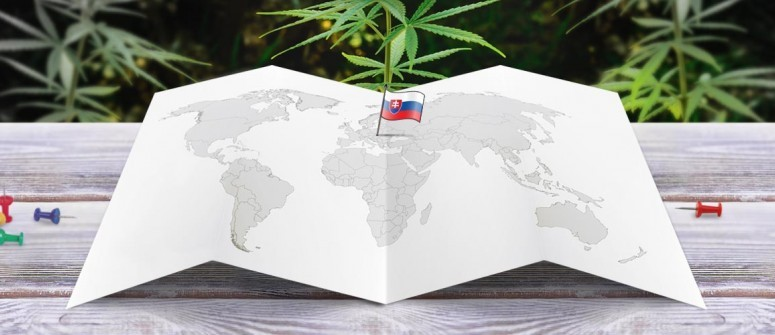Slovakia Legalizes CBD, Joining the European Union Trend
Earlier this week, Slovakia became the latest European Union member state to legalize CBD. From now on, the production, distribution, and use of CBD and products containing it are fully legal under Slovak law. The relevant legislation was agreed upon by the Slovak government and the national Ministry of Health back on March 18 of this year.
International and European Developments
It’s worth noting that at the end of last year, the United Nations, through the World Health Organization, recognized CBD as a non-narcotic substance suitable for medical use. Following this, in the fall of 2020, the Council of Europe also announced the legalization of CBD production and use. As a result, CBD and the plants containing it for therapeutic and industrial purposes have been effectively decriminalized for all EU member states. However, each country must still pass its own laws to regulate the substance locally before it can be sold on their markets. Slovakia is now one of the EU countries to have formalized the production, sale, and use of CBD.
Challenges in Regulation Across the EU
Of course, local legalization in Slovakia and broader legalization across the EU do not mean that all regulatory challenges have been resolved. Despite the adoption of regional norms and standards for the CBD market, the details of national laws remain under the control of individual EU governments. This leads to significant differences in regulations, even between neighboring countries, creating structural and legal challenges for businesses and for establishing a truly unified CBD market in Europe.
Countries apply very different standards regarding the allowed concentration of THC and other impurities in industrial and medical cannabis, which directly affects commercial production and extraction. There are also varying regulations on the forms of CBD products permitted for sale.
Regional Differences and Legal Disputes
The situation is further complicated by the fact that some EU countries can pass different laws on cannabis and related products at the regional level. For example, Germany is a federal state. While the country legalized the production and sale of industrial and medical cannabis at the national level several years ago and has recently started organizing domestic production, cannabis is still listed as a controlled substance nationally. At the same time, some German regions have fully decriminalized the plant and its active components, effectively deregulating the production of cannabinoid-infused products locally. These internal discrepancies have already led to legal disputes at the federal level. Recently, the German Supreme Court sided with the decriminalization of CBD products that may contain traces of THC but are “clearly not intended for recreational use,” aiming to prevent further contradictions.
Toward Unified Standards and Future Prospects
Despite these legal differences, the situation has at least prompted EU countries—especially major economies like France and Germany—to engage in serious discussions about developing unified standards for classifying, producing, and testing CBD products. Many experts and political supporters of regulation agree that CBD products can be regulated as “biologically active dietary supplements,” citing their therapeutic properties and non-psychoactive nature. In the future, EU countries may apply similar regulatory and standardization models to other cannabinoids, including THC, as individual countries begin to legalize it. Such measures could lay the groundwork for a unified, regulated recreational cannabis market across the EU if the plant is ever legalized at the European level.



